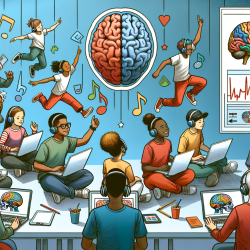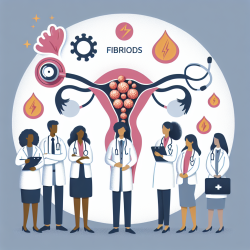In the ever-evolving field of educational therapy, staying abreast of innovative methods to enhance health literacy is crucial. A recent study titled Hip Hop Stroke: Study Protocol for a Randomized Controlled Trial to Address Stroke Literacy offers valuable insights into improving stroke literacy through a child-mediated approach. This blog will explore how you, as a practitioner, can implement these findings to improve your skills and encourage further research in your practice.
Understanding the Hip Hop Stroke Program
The Hip Hop Stroke (HHS) program is a school-based intervention aimed at improving stroke literacy among 4th to 6th-grade students in economically disadvantaged minority communities. The program uses culturally-tailored multimedia, including rap songs and animated cartoons, to teach children about stroke symptoms, the importance of calling 911, and prevention measures. Children are then encouraged to share this knowledge with their parents, effectively spreading stroke literacy within their households.
Key Findings and Their Implementation
The study found that children aged 9-11 years could rapidly learn and retain stroke information for at least 15 months. More importantly, 74% of children in the pilot study communicated this information to a parent, significantly improving parental stroke literacy. Here’s how you can implement these findings in your practice:
- Incorporate Multimedia Tools: Use engaging multimedia tools like rap songs and animated cartoons to teach health-related information. This approach not only captures the children's attention but also makes the learning process enjoyable.
- Encourage Child-Mediated Communication: Motivate children to share what they learn with their parents. This method has proven effective in improving household health literacy.
- Use Repetition for Retention: Reinforce the information through repeated exposure. The HHS program included a booster session three months after the initial intervention, which helped solidify the knowledge.
- Focus on Community-Specific Needs: Tailor your educational materials to address the specific needs and cultural context of the community you are working with.
Encouraging Further Research
While the HHS program has shown promising results, further research is essential to explore its long-term impact and potential adaptations for other health issues. As a practitioner, you can contribute to this research by:
- Conducting Pilot Studies: Implement the HHS program in your setting and document the outcomes. Share your findings with the broader educational and health communities.
- Collaborating with Researchers: Partner with academic institutions to conduct more extensive studies and explore new avenues for child-mediated health communication.
- Adapting the Program: Experiment with adapting the HHS program to other health topics, such as diabetes or hypertension, and assess its effectiveness.
By implementing these strategies, you can enhance your practice and contribute to the growing body of research on child-mediated health communication.
To read the original research paper, please follow this link: Hip Hop Stroke: Study Protocol for a Randomized Controlled Trial to Address Stroke Literacy.










